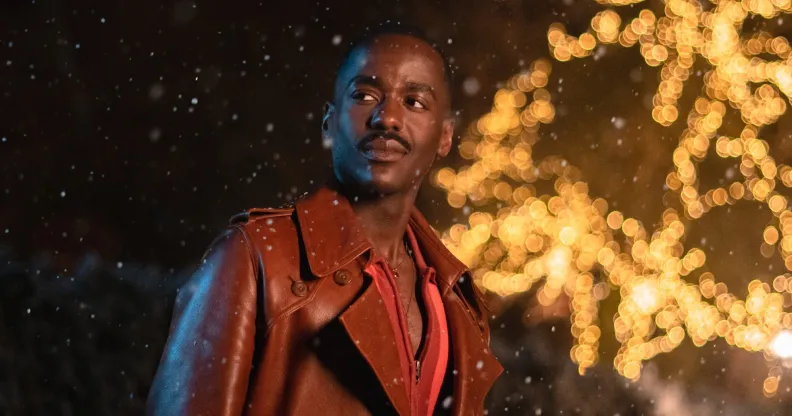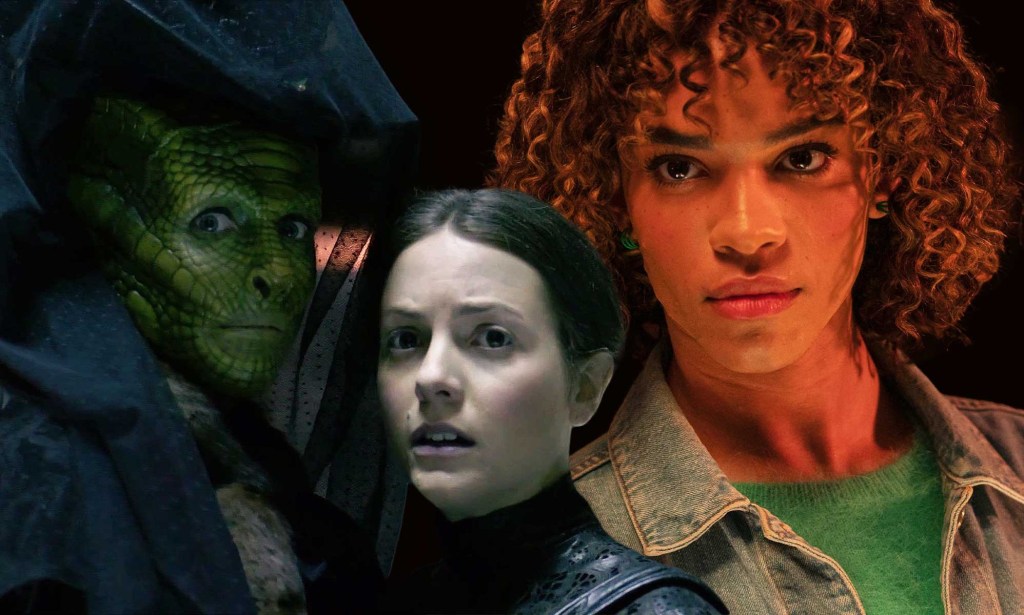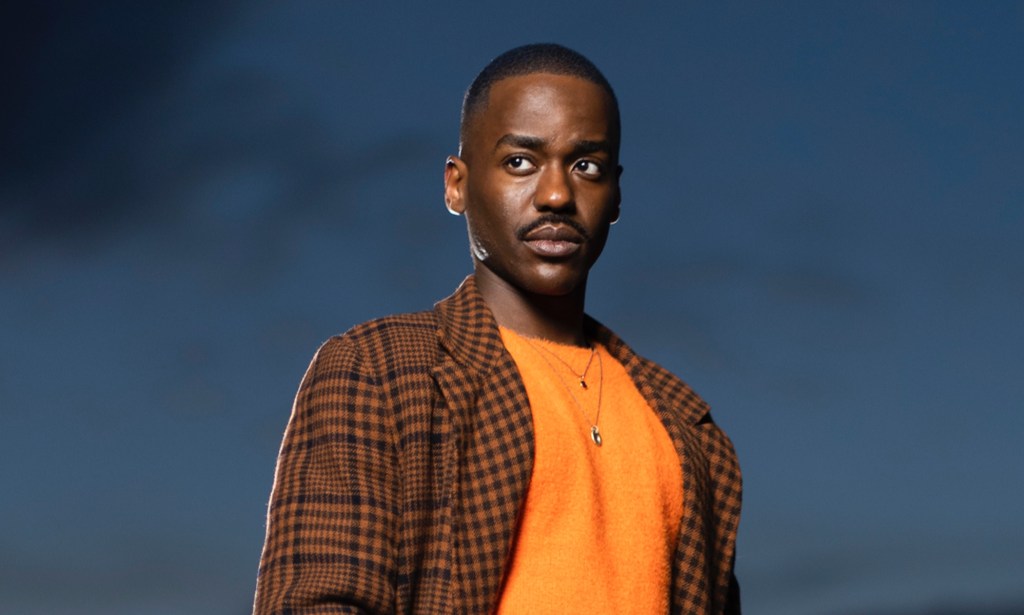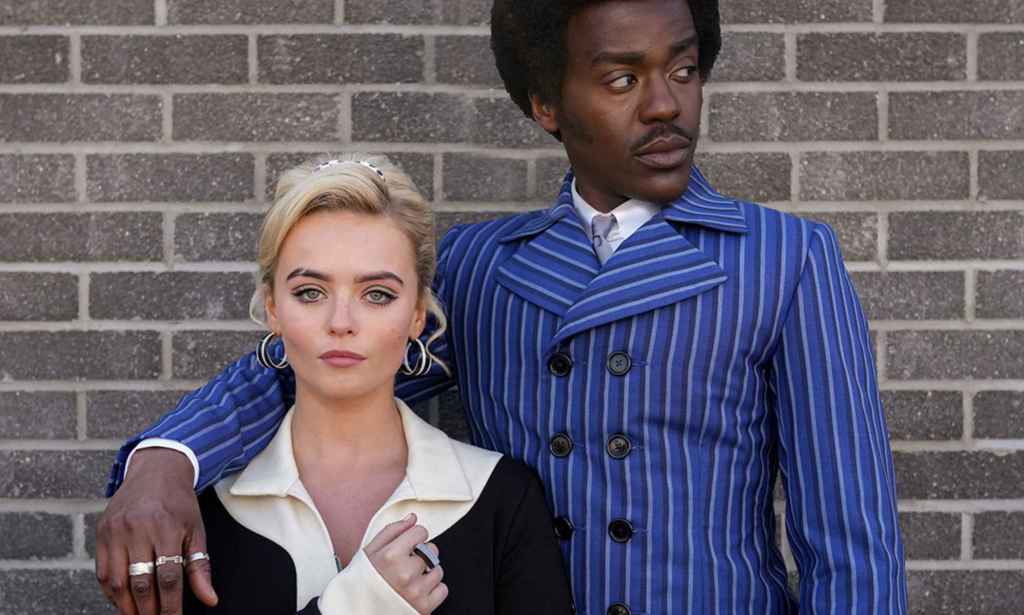Why Ncuti Gatwa’s Doctor Who debut is so important to queer fans like me

Ncuti Gatwa as The Doctor. (BBC Studios/Bad Wolf)
Ncuti Gatwa as The Doctor. (BBC Studios/Bad Wolf)
Growing up as a closeted LGBTQ+ person, Doctor Who was my escape, and the long-awaited arrival of Ncuti Gatwa as the Doctor is ushering in a new era of queer representation on the iconic BBC sci-fi series.
As a second-generation immigrant, the culture clash between me and my parents has, at times, revealed a chasm between our world views. In my youth, it was often TV that served as the tentative bridge that kept us connected and grounded in one another’s lives.
Some of my fondest memories with my dad consist of sitting down on Saturday night to watch the latest episode of Doctor Who, from David Tennant’s adventures (my first Doctor) through to Jodie Whittaker’s era as the first female Doctor (a milestone moment for gender equality on British television).
The 2005 reboot of the British sci-fi series was overseen by Queer as Folk creator Russell T Davies, so it’s no surprise that it included both subtle and overt forms of LGBTQ+ representation from the get-go, from John Barrowman’s Captain Jack Harkness to the plethora of background LGBTQ+ characters who popped up in various episodes.
Queerness infused into the bones of the show, whether through the oddity and otherness of its aliens, the sexual fluidity of its characters or the endless possibilities provided through all of time and space.

As a seven-year-old fan who had never interacted with the LGBTQ+ community in my life, even just a simple nod to their existence changed everything I understood about myself – and who I could be.
While TV shows such as Modern Family and Glee eventually filtered into my cultural consciousness, Doctor Who marked a vital leap in normalising the LGBTQ+ community on screen, not only for me but also for my whole family.
As I went through my own journey of self-discovery in my teen years, the series went through its own metamorphosis: In recent years we’ve seen out queer companions such as Bill Potts, played by Pearl Mackie, tender LGBTQ+ romances involving The Doctor and the Time Lord’s own gender-fluid nature all explicitly shown on screen.
Now, years of building LGBTQ+ representation into the fabric of Doctor Who have culminated in Sex Education star Ncuti Gatwa taking over as the 15th Doctor. For LGBTQ+ people of colour, this is a landmark moment for numerous reasons.
Gatwa, whose casting was announced in May 2022, is about to make history, not only as the first full-time Black Doctor (following in the footsteps of the fugitive Doctor Jo Martin), but also as the first out queer actor to take on the role.

It feels like a fitting next step following the 13th Doctor’s sapphic romance with companion Yaz (Mandip Gill) which ended in heartbreak during Whittaker’s season finale, “The Power of the Doctor”.
Under the returning Davies, the 60th anniversary specials, which have seen David Tennant and Catherine Tate reprise their beloved portrayals of the Doctor and companion Donna Noble, haven’t shied away from the Doctor’s queer identity.
In the first story, “The Star Beast”, we saw Heartstopper‘s Yasmin Finney star as Donna’s transgender daughter Rose in a brilliant trans-centric storyline that reflected The Doctor’s own gender identity. “Wild Blue Yonder”, the second special, also showed Tennant’s 14th Doctor express his attraction to Isaac Newton with an off-the-cuff remark.
All of this bodes well for Gatwa’s run, which we already know will include other LGBTQ+ talent such as Looking star Jonathan Groff and Drag Race legend Jinkx Monsoon in major supporting roles.
More importantly, the role feels incredibly safe in Gatwa’s hands. In October last year, the actor spoke about the importance of a Rwandan immigrant becoming the face of a time-honoured British institution.

“[Doctor Who] matters for people of colour, for marginalised people who really gravitate towards the show because it’s about friendship and it’s about adventure and it’s about union and unity,” Gatwa said at the time, echoing the sentiment of many fans.
Then, in the lead up to Sex Education season four, he opened up about fighting for his gay Black character Eric to be authentically represented on screen, despite comments from a white executive producer.
And finally, when Gatwa came out publicly as queer earlier this year, he recalled the heart-warming time he encountered a fellow queer Rwandan person at a Pride event and how revolutionary it was to see himself represented on the streets.
With Davies and Gatwa’s combined resilience to any backlash, and commitment to genuine and impactful LGBTQ+ representation, the new season of Doctor Who – due to air in 2024 – has the chance to change the lives of young queer kids watching with their parents.
As for me, my dad is waiting at home to watch the new episodes with the same enthusiasm as always – but this time round, I can breathe a little easier knowing my childhood fantasy world will feel more real than ever before.
After the final anniversary special on Saturday (9 December), Doctor Who will return with Ncuti Gatwa’s first adventure, “The Church on Ruby Road” on Christmas Day on BBC One and BBC iPlayer. It will stream globally on Disney+.

